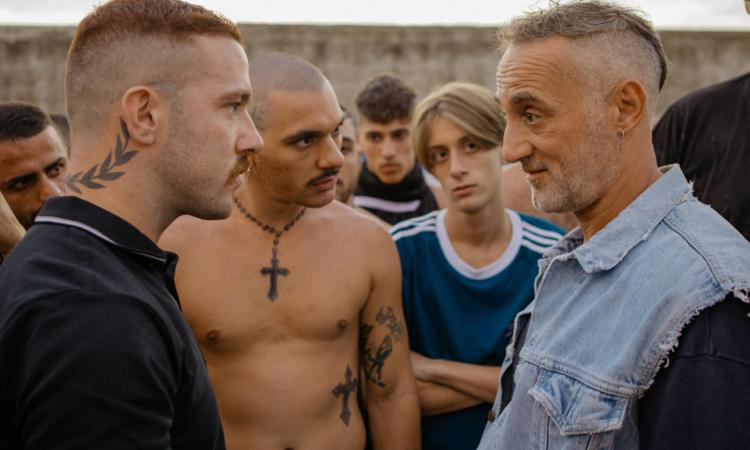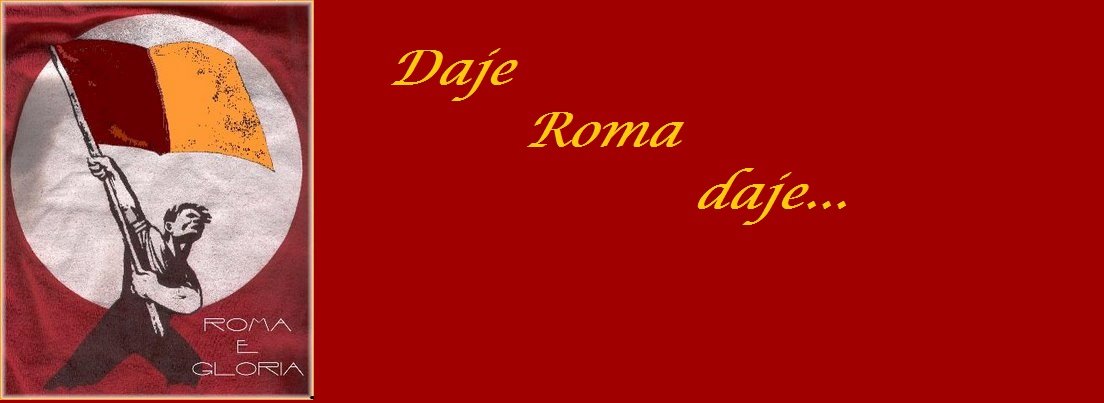Ultras: il film (Netflix).

Se un romanista riesce ad andare oltre agli svariati e pesanti insulti alla propria città e al proprio club, il giudizio sul film è obiettivamente positivo. E’ il solito problema della discriminazione territoriale che significa pesanti sanzioni alle squadre che affrontano il Napoli, mentre contro tutte le altre squadre e le altre città viene ignorata. Sì, certo, stiamo parlando di un film (ad esempio gli Apache, il gruppo ultras del Napoli protagonista della storia non esiste), ma il fatto che tutte le squadre e tutte le città sono insultate è evidente a chiunque viva lo stadio (anche dalla tv) e sotto questo punto di vista, il film è abbastanza realistico. Se c’è reciprocità (come c’è reciprocità) o è giusto punire tutti o non si deve punire nessuno.
Il film tocca molti temi. C’è la violenza che ha fatto sempre parte del mondo ultras (ahimè). C’è la droga e birra a fiumi. C’è un rapporto padre-figlio irrisolto, in cui il figlio rivendica i suoi diritti e il padre, come spesso accade, è (o si sente) inadeguato. C’è la difficile convivenza tra gruppi vecchi e gruppi nuovi. I primi cercano di evitare guai, i secondi sono più ribelli e maggiormente propensi al caos (come diceva Ligabue “Si nasce incendiari e si muore pompieri”). Lo scontro generazionale però non è ideale ma si configura come una vera e propria lotta di potere. Il paragone che mi è venuto in mente è quello tra “Fedayn” e “Gruppo Roma” in Curva Sud, anche se poi le dinamiche di questo alterco sono più complesse. I personaggi hanno molto carisma. La fotografia è fatta con senso ed è a suo modo romantica. Sullo sfondo c’è il Vesuvio e il mare è una parte costante del film, come è giusto per un film su Napoli e i napoletani.
Essere ultras è uno stile di vita. Una mentalità che richiede un’etica. Gli ultras non sono solo violenza, ma coltivano amicizie autentiche (molto più autentiche che in altri spazi della società dove regnano le amicizie di comodo o di interesse) e se qualcuno sta massacrando un amico, l’altro si ferma e va ad aiutarlo. L’ultras è una sovrastruttura del mondo del calcio che ha creato una sua identità precisa.
Come ho spesso sottolineato io: se il concetto di ultras diventa autonomo dal club o addirittura dannoso per il club, non ha senso di esistere. Per chi come me promuove lo sport e la cultura sportiva, questo aspetto del film è indiscutibile, anche se al regista questa caratteristica non interessa. Per lui, era più importante sottolineare le dinamiche dei rapporti interpersonali e di gruppo tra gli ultras.
In un mondo patinato e falso come quello in cui stiamo vivendo (o forse è più giusto dire stavamo), in cui spesso le amicizie sono dovute a interesse e sono facilmente tradite, è normale che un giovane si rivolga al mondo degli ultras (o degli ultrà se preferite questo termine) dove esiste condivisione, solidarietà e amicizie sincere. Se poi si riesce a passare sopra alle divergenze ideologiche, alle lotte di potere e alle antipatie personali, i 17.000 della Curva Sud sono una potenza e possono essere un fattore contro qualsiasi avversario. Probabilmente anche questo brutto periodo che stiamo passando ci aiuterà a essere più sinceri e più buoni col prossimo. Ci aiuterà a essere solidali, a condividere il vissuto e a stringere amicizie autentiche che è l’aspetto più importante del film.
If a Romanist manages to go beyond the various and heavy insults to his city and his club, the judgment on the film is objectively positive. It is the usual problem of territorial discrimination which means heavy penalties for the teams that face Napoli, while against all other teams and other cities it is ignored. Yes, of course, we are talking about a film (for example the Apache, the Napoli ultra group that is the protagonist of the story does not exist), but the fact that all the teams and all the cities are insulted is evident to anyone who lives in the stadium (even from the tv) and from this point of view, the film is quite realistic. If there is reciprocity (as there is reciprocity) or it is right to punish everyone or nobody should be punished.
The film touches on many themes. There is violence that has always been part of the ultras world (alas). There is drugs and beer in rivers. There is an unresolved father-son relationship, in which the son claims his rights and the father, as often happens, is (or feels) inadequate. There is a difficult coexistence between old and new groups. The former try to avoid trouble, the latter are more rebellious and more prone to chaos (as Ligabue said “You are born arsonists and you die firefighters”). The generational clash, however, is not ideal but is configured as a real power struggle. The comparison that came to my mind is that between “Fedayn” and “Gruppo Roma” in the Curva Sud, even if the dynamics of this altercation are more complex. The characters have a lot of charisma. Photography is made with sense and is romantic in its own way. In the background there is Vesuvius and the sea is a constant part of the film, as is right for a film about Naples and the Neapolitans.
Being ultras is a way of life. A mentality that requires ethics. The ultras are not only violence, but cultivate authentic friendships (much more authentic than in other areas of society where friendships of convenience or interest reign) and if someone is slaughtering a friend, the other stops and goes to help him. Ultras is a superstructure in the world of football that has created its own identity.
As I have often pointed out: if the concept of ultras becomes autonomous from the club or even harmful to the club, it makes no sense to exist. For those like me who promote sport and sports culture, this aspect of the film is indisputable, even if the director is not interested in this feature. For him, it was more important to emphasize the dynamics of interpersonal and group relationships between the ultras.
In a glossy and fake world like the one in which we are living (or perhaps it is more correct to say we were), in which friendships are often due to interest and are easily betrayed, it is normal for a young person to turn to the world of ultras (or ultrà if you prefer this term) where there is sharing, solidarity and sincere friendships. If you then manage to get over ideological differences, power struggles and personal dislikes, the 17,000 of the Curva Sud are a power and can be a factor against any opponent. Probably even this bad period we are going through will help us to be more sincere and better with others. It will help us to be in solidarity, to share our experience and to make authentic friendships which is the most important aspect of the film.
Giordano Sepi
